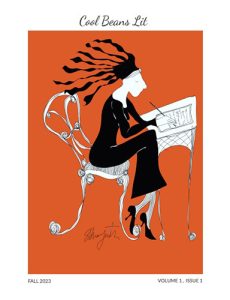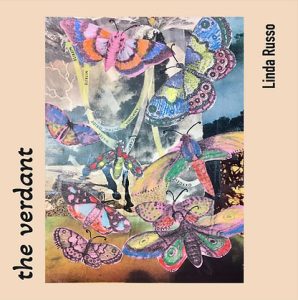Watershed – 2009
Volume 33
Fall 2009
Annual
Jennifer Vande Zande
California State University’s student-edited journal Watershed is cohesive in its content and approachable in its length. This collection of poetry, prose and photography centers itself around recollections of childhood and of family, bringing the past and present together—illustrating through apt detail the way people live, work and connect with one another. While slim, only 66 pages, it shouldn’t be rushed.
California State University’s student-edited journal Watershed is cohesive in its content and approachable in its length. This collection of poetry, prose and photography centers itself around recollections of childhood and of family, bringing the past and present together—illustrating through apt detail the way people live, work and connect with one another. While slim, only 66 pages, it shouldn’t be rushed.
Jennifer Ann Janisch writes of youth and discovery in her piece “Abbot and Costello are Dead”:
When I was seven, my parents sold my dog at a garage sale.
I had been sitting under the ash tree in the front yard, sifting through the dandelions littering the lawn with knees stained green and fingers stained yellow. I wore leaves in my hair, not a wreath of laurels, but random juts of crispy, fallen leaves that crumbled at the touch.
She goes on to recall piano lessons taken in the home of Mr. Fred Startup—her parents stay for the entirety of every lesson. Not, as she later found out, because they were interested, but because there had been rumors… rumors regarding Mr. Startup and of misconduct with children.
Janisch writes, “Insects lived in my piano teacher’s house. I never saw them, but I saw delicate webs on shelves, burned wings on lamps. I saw what they left behind. Dust, lit by stray light, looked like dead skin. I wondered if it was Mr. Startup’s skin, what he was leaving behind.”
In a similar exploration of human truths and discovery, “The Appointment” a poem by John F. Buckley, gives the illuminating, if not gruesome, details of a man desperate to become a father. What is it really like to step behind the curtain of the examination room? Through Buckley’s piece, we see that it can be awkward and painful, both emotionally and physically:
Obedient, wanting to please the fertility specialist,
I dip my scrotum into the beaker of boiling water and
leave it to steep for three minutes. I add cream after,
to thicken the infusion, anything that will help.
And later in the poem…
I clumsily confess to him our private affairs,
how after we make love, I take my wife out to
the fertile green courtyard, pick her up by her ankles
and swing her around, how the mini-plunger works
to extract my last milky drops, how we devoutly pray
to household saints Dr. Seuss and Mother Goose,
burning dried Gerber’s strained peas like incense
at our living-room shrine…
Finally, in the end, this man who has endured the frustration of fertility treatments long enough—treatments necessary due to a defect he bears—hits the wall. It is both an end and a resolute beginning.
Watershed has been in circulation since 1977 and is published iannually by the English department of California State University. The students in English 415 who have edited this volume, should be proud of their final product. Over half of its contributors are students themselves or those affiliated with CSU. It’s smart, tight and is, on the whole, a very satisfying read.
[www.csuchico.edu/engl/wshed/]




